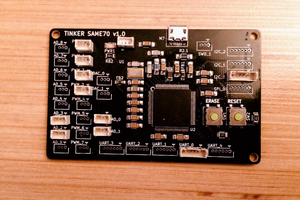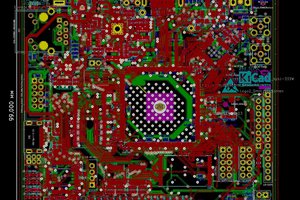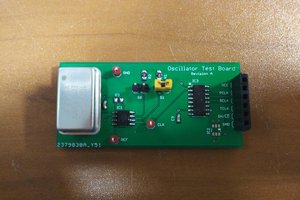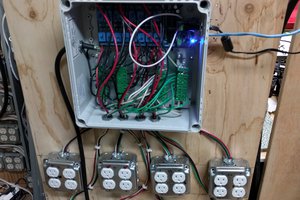Near the end of 2023, following the successful publication of our first peer reviewed paper and with the OpenCTD program ramping up for summer workshops, I realized that I needed a good, memorable way to introduce ocean knowledge seekers to the OpenCTD.
Business cards are boring and easy to lose. A business card that doubles as a working oceanographic instrument, complete with an online guide, is not boring.
The original idea was to provide a fun novelty, but as the first batch of prototypes rolled off the PCB mill, I realized that this goofy idea could fulfill an actual need during the OpenCTD workshops I run.
Because of how the OpenCTD is assembled over a two-day class, component testing doesn't happen until fairly late in the build, meaning that errors made early on compound, frustrating new and experienced users alike. To help alleviate this problem, we developed a bench test board. This board fulfills 3 roles during an OpenCTD workshop.
- Provides practice for inexperienced makers. Students who have never soldered before are often nervous to lay down their first glob on a real component. This board let's them practice as much as they want without risking any real components.
- Provides an easy way to test components. Once populated, this board can be used to test every component in the OpenCTD, from the control unit to the sensor package. This makes it much easier to identify and correct problems early.
- Keeps our contact info close at hand. Just in case you need to get in touch with the core OpenCTD team or can't remember the address to the GitHub repo, all of that information is stored right on the board.
We also added a non-dedicated pin to the breakout headers, so that advanced users can use the board to experiment with other sensors in the OpenCTD platform.
And yes, in a pinch, the bench board can also serve as a fully functional control unit for an OpenCTD.
The bench test board introduced significant flexibility into the OpenCTD building process. By having a pre-made board which can test and verify each component of the CTD before they are incorporated into the larger project, students were better able to evaluate and troubleshoot their builds before committing sensors to epoxy or soldering components into place. Having the bench test board helped participants build confidence in their skills and made it easier to identify and correct potential issues during the build.
It's more than just a fun business card. All future OpenCTD workshop will include one of these bench boards.
 andrew.david.thaler
andrew.david.thaler
 Laetitia BEL
Laetitia BEL
 HT3H5796-14
HT3H5796-14
 Dave's Dev Lab
Dave's Dev Lab
 kp
kp